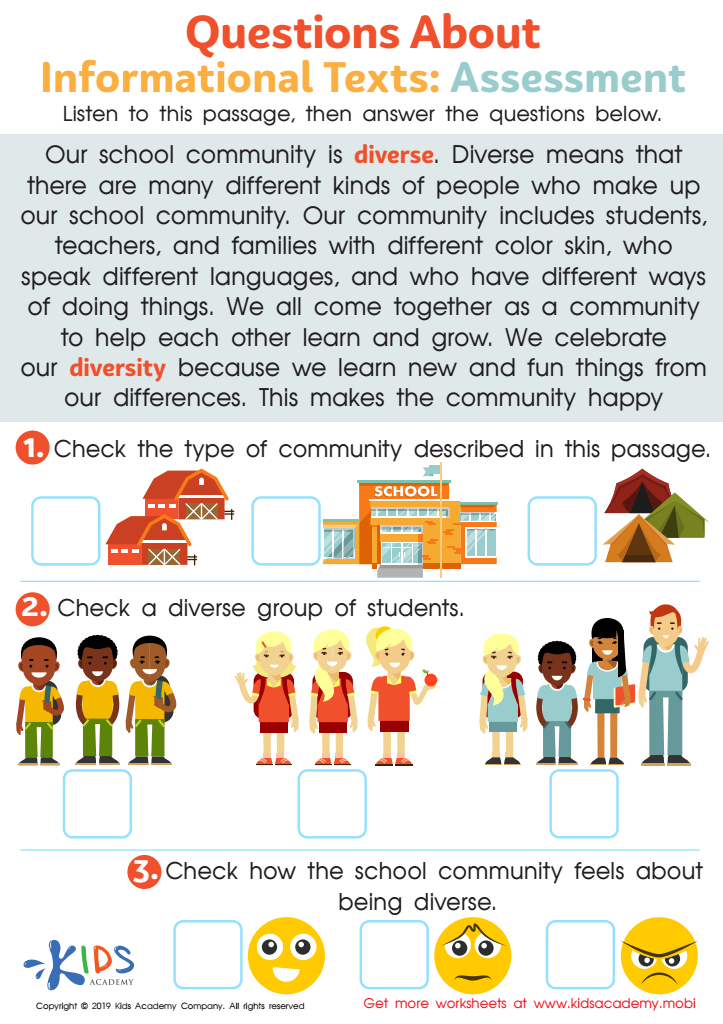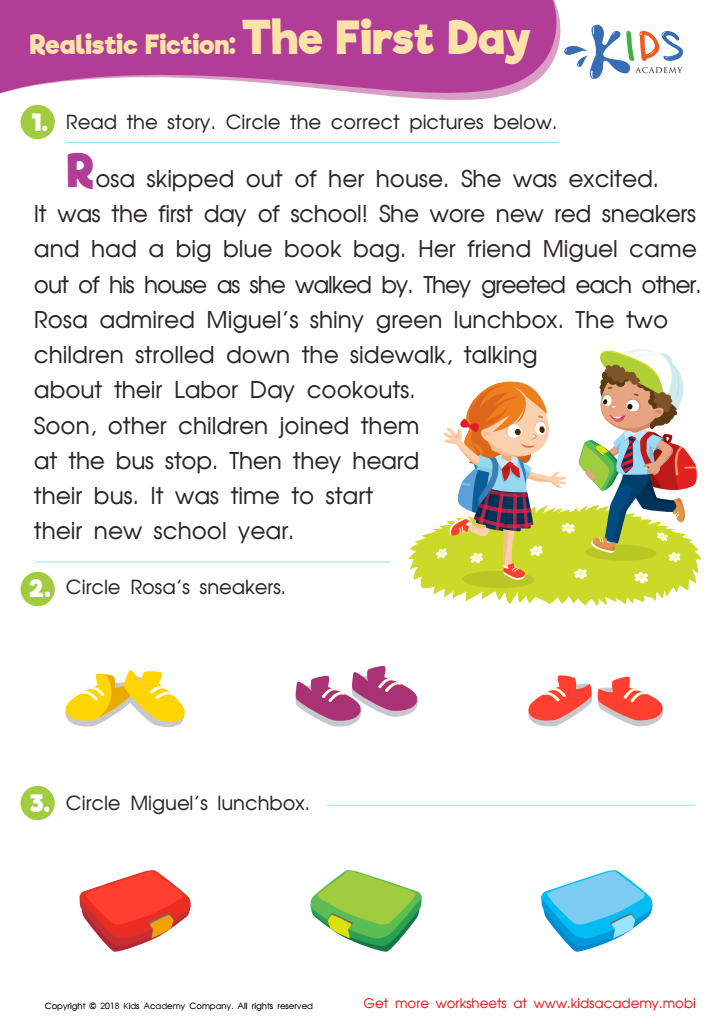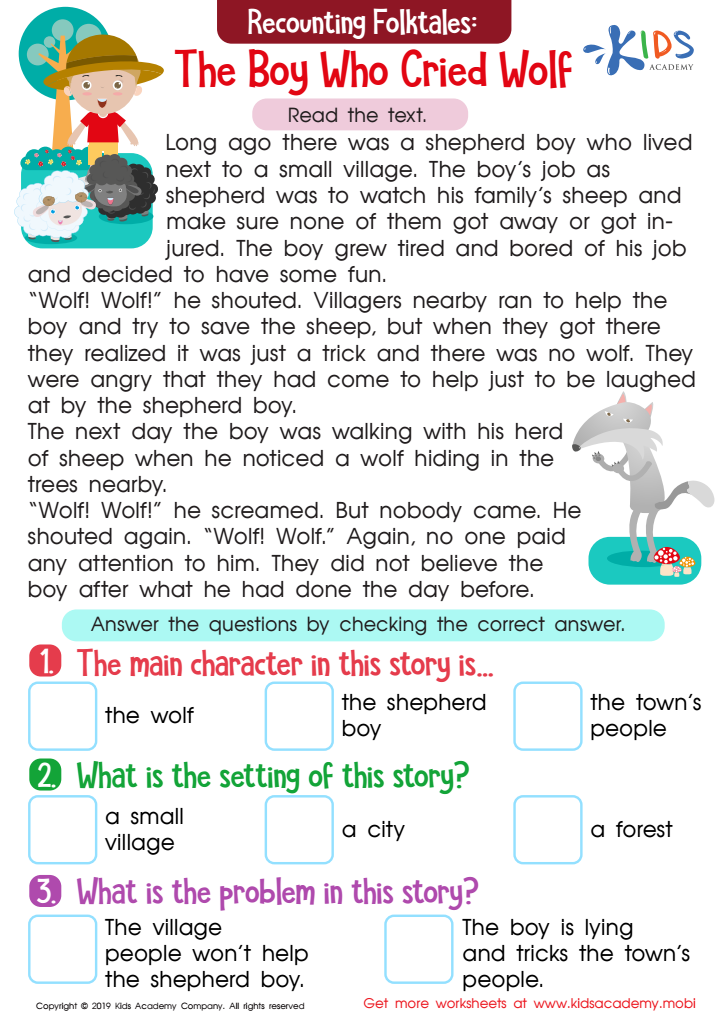Text analysis Normal Worksheets for Ages 6-8
3 filtered results
-
From - To
Discover our engaging Text Analysis Normal Worksheets tailored for children aged 6-8! These interactive worksheets are designed to enhance comprehension skills, vocabulary, and critical thinking. Each exercise encourages young learners to analyze stories and passages, identify main ideas, and recognize the structure of texts. By providing varied activities such as matching exercises, fill-in-the-blanks, and comprehension questions, these worksheets cater to different learning styles. Ideal for home or classroom use, our resources support educators and parents in fostering a love for reading and improving literacy skills. Encourage your child's analytical abilities while making learning fun with our Text Analysis worksheets today!


Questions About Informational Texts: Assessment 1 Worksheet


Realistic Fiction: The First Day Worksheet


The Boy Who Cried Wolf Part 1 Worksheet
Text analysis is crucial for children aged 6-8 as it forms the foundation for their reading and comprehension skills. At this age, children are developing critical thinking abilities and learning to decode text. By engaging in text analysis, parents and teachers can help young learners explore stories and information more deeply, enhancing their understanding and appreciation of literature.
Text analysis encourages children to make connections between different ideas, recognize themes, and comprehend character motives. By asking questions about the text—such as "why did the character choose that action?" or "what do you think will happen next?"—adults can stimulate discussions that develop reasoning skills.
Furthermore, this age group benefits from interactive reading experiences. Using techniques like summarizing, predicting, and visualizing supports cognitive skills. As they dissect texts, children practice vocabulary and develop attention to language, which fosters writing skills.
Finally, proficiency in text analysis promotes a love for reading and lifelong learning. When parents and teachers prioritize this skill, they not only help children become competent readers but also nurture their curiosity, creativity, and critical thinking, paving the way for educational success in later years.
 Assign to My Students
Assign to My Students










.jpg)










